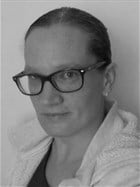This Women's Month, we caught up with Ariana Issaias, a director at Bowmans, Kenya and the African Legal Awards Rising Star for 2024.

Ariana Issaias, director at Bowmans, Kenya
Based in Nairobi, Issaias holds her LLB from the University of Manchester and is a member of the firm's IP & Technology team: "My practice areas and experience cover commercial and consumer intellectual property advice, data protection and technology, and I regularly advise clients across all of these practice areas.
"For example, I have advised clients on both the demand and supply side on a range of commercial agreements, including supply of goods/services, e-commerce payment services and platform integration, fintech (including payment services, digital lending, digital banking, crypto assets and block chain), software licensing and distribution, cloud services, agency and distribution, franchising, licensing, IP exploitation and brand enforcement, covering trade secrets, confidentiality and know-how," Issaias explains.
"I have also been spearheading the office’s emerging technologies thought leadership practice."
Here we chat to Issaias more about her love of IP law, women in patents and what advice she has for aspiring young legal minds...
Tell us a little bit about what drew you to IP law?
I really enjoy the creative aspect of intellectual property law. IP applies across every aspect of our lives, not just from a musical or artistic perspective, for example, but also from a technological perspective, so the days of an IP lawyer can be extremely varied.
When I started my career, our IP team was pretty small, and as a result, I was exposed to a range of diverse types of work in publishing, hospitality, technology and consumer goods, for example. This variety made the work so interesting, and it was great to be able to practice law across so many different applications. This is where my passion for IP law grew.
Congratulations on being named the Rising Star by both the African Legal Awards and IP Stars. What do these accolades mean to you?
It was a huge honour to be recognised in this way. For me to see who was on the judging panel and realise that this highly respected group of experts recognised me for the work I do in IP, which is quite niche in the legal sector, meant a great deal to me.
According to the South African Institute of Intellectual Property Law (SAIIPL), only 22% of practising patent attorneys are women, while women make up 45% of all practicing IP professionals in South Africa. Global statistics indicate this is not unique to South Africa. What do you believe sits at the heart of this disparity?
Patent law has always been quite a niche qualification, which might account for these statistics. From an IP perspective, and from our perspective at Bowmans in Kenya, our team in the Nairobi office represents a 50-50 gender balance. Increasingly, we are seeing more and more women choosing IP law as a career.
On the other side of the IP coin, statistics show that women are also massively underrepresented as inventors in patent applications/filings. What do you believe it the cause of this, and how do we change it?
At the end of the day, a patent is an innovation. It's scientific and technical research and I think this underrepresentation is more on the sector side, from an engineering, agriculture, biotechnology and technical perspective, for example. The good news is that, globally, studies show a rapid increase in female innovators, so hopefully those statistics will start to look different soon, and we will see more women represented in patent applications.
What is your advice to young female lawyers interested in pursuing IP law?
Finding the right fit for the type of work that you're interested in is a big first step. Particularly, I think, amongst African law firms, there are very few IP-focused practices.
Finding this fit in a preferably IP-focused practice might be difficult, but it will help you focus, hone in on, and understand this area of law as an advisor. This does not just apply to law firms. I did a secondment in my early career, which was very helpful because I received a lot of varied advice and experience from a business perspective. This really enhanced my understanding of IP law.
Certainly, from my perspective, it has also been important to find a firm that has a supportive family culture.
What is your message to young women this Women’s Month?
Starting out is always tough, particularly for young lawyers. I hugely admire young lawyers for their drive and ambition, but I also sense sometimes their frustration at how slow the process is to rise through the ranks, particularly in private practice, where it can take time to start flying.
Private practice has always been a slow and steady route to practising law. But if it is something you really want to do, it's worth taking those steps slowly because there is so much learning in the profession, particularly now, with all the evolutions in our working practices and technology. There is going to be a huge adaptation to what a lawyer does in private practice in the next few years.
It's also important to know what you want. During my legal career I took a break for a year or so and realised that I wanted to get back into law. Having a break and then realising that law was the career that I wanted to pursue really assisted me in changing the way I viewed my career in the long term and helped me to launch a successful career in IP law.


























































